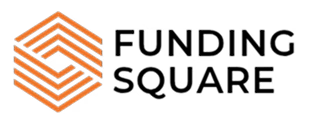- Grant Amount – up to $150,000
- Deadline – March 25, 2025
- CLICK HERE TO APPLY
This $150,000 Grand Challenge on Innovative Data and Modeling Approaches to Measure Women’s Health seeks to advance innovative ways to measure women’s health by either developing new measurement models or adapting existing ones to better capture the full scope of women’s health burdens and progress.
.
This Grand Challenge prioritizes solutions that leverage data sources that are existing or under development rather than relying on new, large-scale data collection efforts, ensuring sustainability and feasibility.
.
Objectives
- They invite applicants to explore bold, innovative approaches. Specifically, the objectives of the Challenge will be to:
- Reimagine new ways to understand and measure women’s health that extend beyond the limitations of existing composite indicators such as DALY.
- Use existing data sets or easily collectible datasets to quantify women’s health outcomes across countries. While this Grand Challenge does not fund large-scale data collection, proposals may include small-scale data expansion where it is feasible, policy-relevant, and significantly enhances gendered analysis.
- Design innovative methodologies that incorporate gendered, socio-cultural, economic, and structural determinants of health, ensuring a comprehensive gender-sensitive approach (A gender-sensitive approach takes into consideration how one’s gender impacts access to services, risk and protective factors and barriers that are uniquely experienced because of one’s gender in a society).
- Create tools or frameworks that enable cross-cultural or subnational comparative analysis, identifying context-specific gaps and progress.
- Reflect the interconnected dimensions of women’s health across the life course
- Incorporate gaps in the measurement of:
- Skills, knowledge, and networks: addressing how gender disparities in education, training, and professional networks impact health access, decision making, and service delivery.
- Supply and access to services: examining how health systems, financing mechanisms, and gender-based barriers affect the availability, affordability, and accessibility of essential services for women
- Health and economic impacts: capturing the intersection of health outcomes with economic participation, caregiving burdens, workforce inclusion, and financial independence.
- Produce outputs that are:
- Methodologically rigorous: applying sound data science, statistical modeling, or analytical techniques that enhance the validity and reliability of women’s health measurements.
- Interpretable and actionable: ensuring results can be understood and applied by policymakers and implementers.
- Comparative and scalable: enabling cross-cultural or subnational analysis to identify patterns, disparities, and opportunities for intervention.
- Gender-sensitive and intersectional: incorporating the social, economic, and structural determinants that affect women’s health outcomes.
- Policy-relevant and decision-oriented: providing insights that have the potential to directly inform policies, resource allocation, or program design to improve women’s health measurement and action.
Funding Information
- They will consider proposals for awards of up to $150,000 USD for each project, with a grant term of 18-24 months.
Eligibility:
- This initiative is open to nonprofit organizations, for-profit companies, international organizations, government agencies and academic institutions. They particularly encourage applications involving projects led by women, early-career researchers and practitioners seeking to innovate in women’s health measurement, or from women-led organizations and applications from institutions based in low- and middle-income countries. They also encourage collaborative submissions across disciplines such as economics, public health, and gender studies.
- They are looking for proposals that:
- Demonstrate innovative thinking in modeling women’s health, providing creative methodologies or tools to address gaps in measurement.
- Leverage existing data sources and/or explore datasets that are feasible to collect within current capacities.
- Incorporate intersectional approaches, addressing disparities (social, economic, and structural determinants of health) that disproportionately impact women.
- Align with the Opportunity Map dimensions, focusing on multidimensional indicators beyond traditional composite measures.
- Show potential to generate actionable insights for policy and programmatic interventions at a national and/or global scale.
- Enable cross-country or subnational comparisons, offering solutions that reveal context-specific gaps and opportunities for progress.
- Present a clear pathway for real-world impact, outlining how the outputs can inform resource allocation, policy, or program design.
- Highlight the potential for scalability and adaptability of the proposed approach across diverse country contexts.
- Promote interdisciplinary collaboration, combining perspectives from multiple sectors such as public health, data science, economics, and gender studies.
………………………………………………………………………..
At Funding Square, we help African entrepreneurs and organizations access funding through three expert services:
.
- Grant Research Service – Get 50 tailored grant opportunities handpicked for your business or nonprofit, saving you time and effort.
- Grant Proposal Writing – We craft compelling, funder-friendly proposals that grab attention and increase your chances of success.
- Fundraising Business Plan – A powerful, funding-ready business plan designed to attract grants, loans, and investors.
Let’s turn your funding goals into reality!
.
Contact us today by sending us an email at hello@fundingsquare.org

